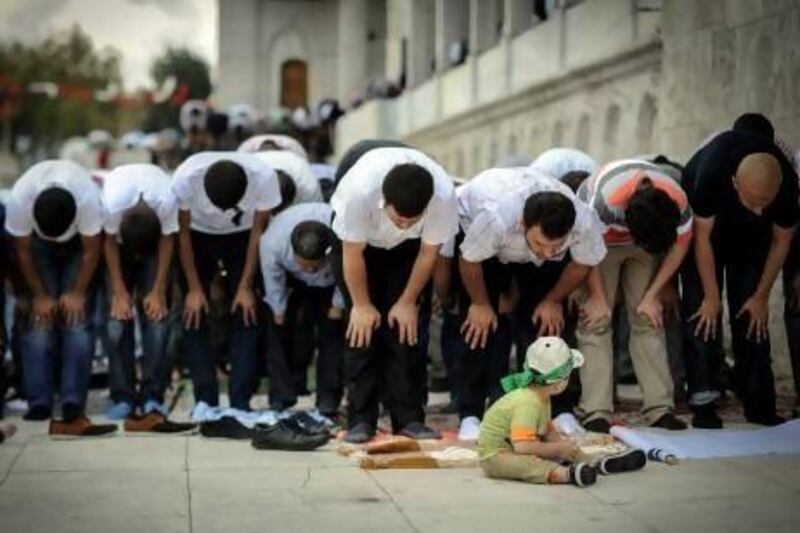ISTANBUL // The Turkish government said it faced a "meritorious isolation" in the Middle East, as the crisis in Egypt has sharpened differences between Turkey and other countries in the region.
Turkey's uncompromising criticism of the removal of Egypt's president, Mohammed Morsi, from power has created tensions with the new rulers in Cairo, Arab countries and with the Organisation of Islamic Cooperation (OIC).
Turkey has said its approach to events in Egypt is based on universal democratic values. But the government is not making any friends by accusing other states of lacking democratic commitment.
Ibrahim Kalin, an adviser to the prime minister of Turkey, Recep Tayyip Erdogan, said this month that his reply to the view that Turkey was isolated in the Middle East was that "this is a meritorious isolation".
Ilter Turan, a political scientist at Istanbul's Bilgi University, criticised Turkey's harsh style.
"Each time they make a move, it seems to add to the isolation of Turkey from its neighbours and the international community," said Mr Turan.
Ankara's approach was likely to "blow up bridges" with other states in the region, he said.
Egypt's military-backed government sharply rejected an assertion by Mr Erdogan that Israel organised the army intervention to remove Mr Morsi from power on July 3.
"The cabinet stresses that Egypt's patience is wearing thin," reported the Egyptian state news agency Mena.
Turkey, which regards itself as a regional leader, has accused the West and Arab states of failing to condemn Mr Morsi's removal as a coup against a democratically elected president and has called for the reinstatement of the former head of state, who is still in military custody.
Bekir Bozdag, a deputy prime minister in the Erdogan government, said that the secretary general of the OIC, the Turkish diplomat Ekmeleddin Ihsanoglu, should resign because the organisation did not condemn Mr Morsi's removal from power.
This week, Mr Erdogan looked for allies beyond the Middle East. He told the Malaysian prime minister, Najib Razak, that Turkey supported an initiative by Malaysia for an OIC emergency meeting to discuss the situation in Egypt.
Turkey's growing isolation is not what Ankara aimed for with its official policy of "zero problems" with neighbouring countries, postulated by the foreign minister, Ahmet Davutoglu.
Yasin Dogan, another of Mr Erdogan's advisers, said that even before the recent events in Egypt some countries in the Middle East had been worried about the stability of Turkey, a secular democracy with a strong market economy and a predominantly Muslim population.
"When Turkey's identity that is at once Muslim and democratic came to the foreground, this made those countries even more nervous than people in the West," Mr Dogan said in the pro-government Yeni Safak newspaper this week.
He said Turkey's foreign policy, while based on ethical values of democracy and the rule of law, was still pragmatic. "Turkey is not romantic or emotional, but is moving ahead with rationality and a morality that does not lose sight of realpolitik," said Mr Dogan.
* With additional reporting by Reuters





